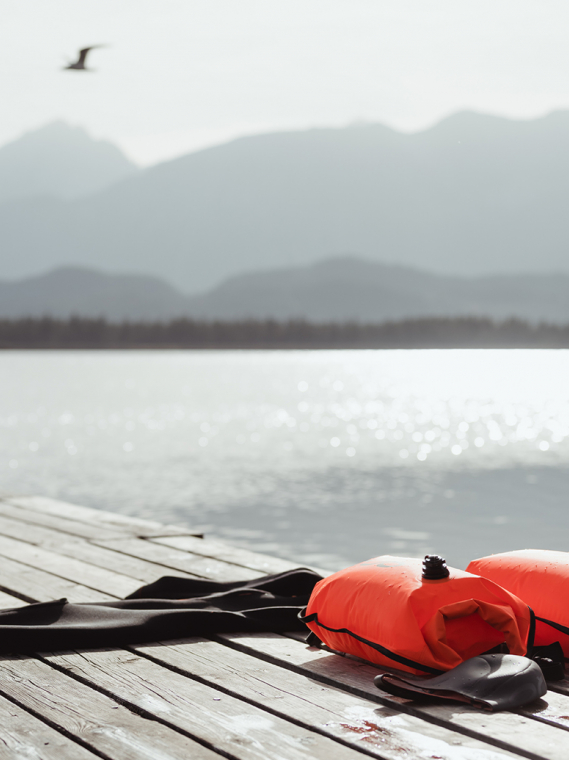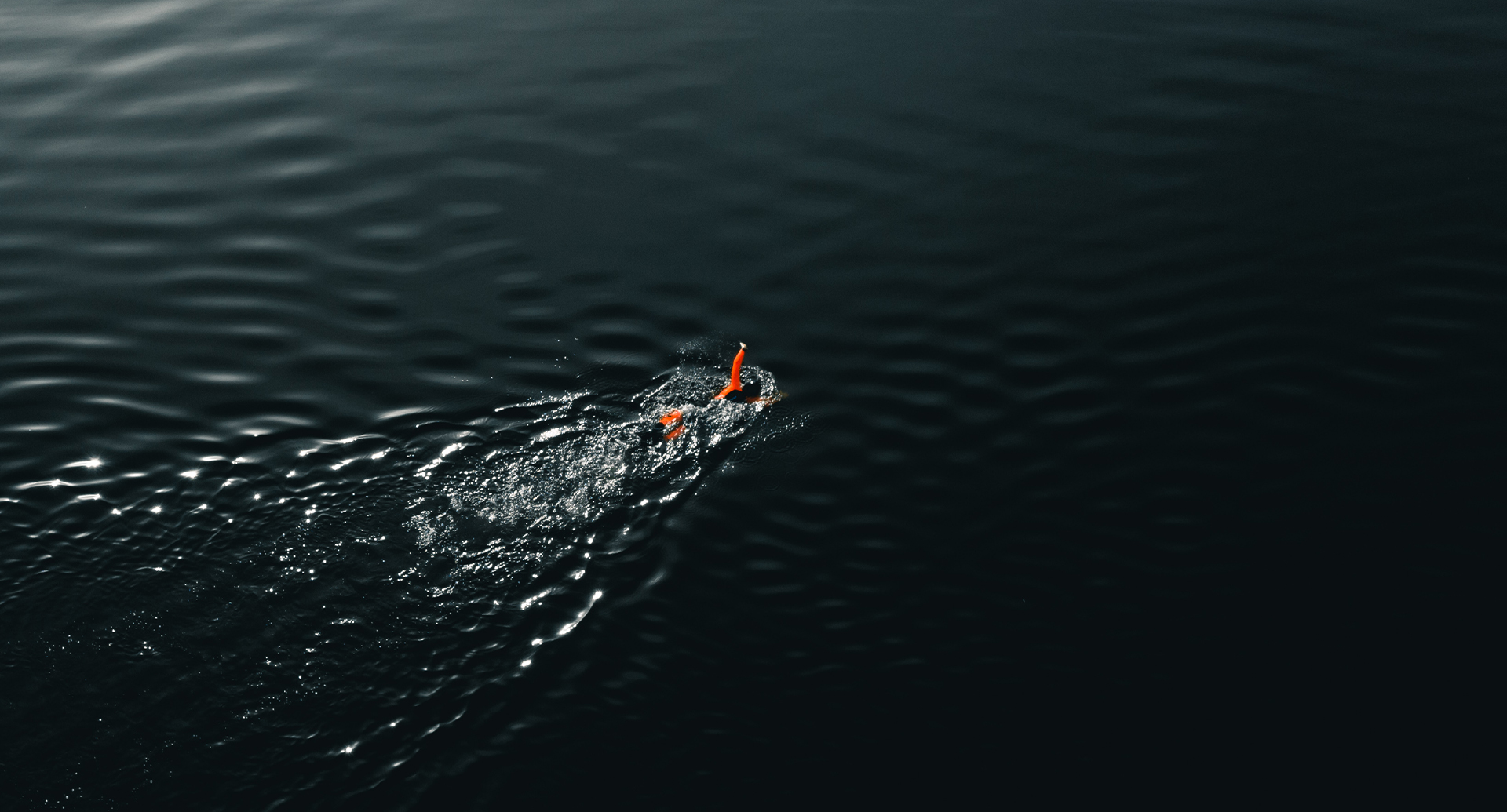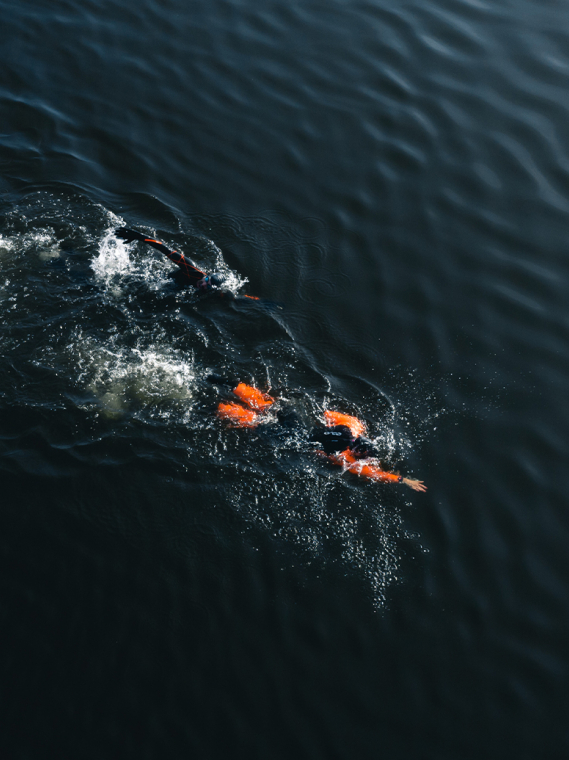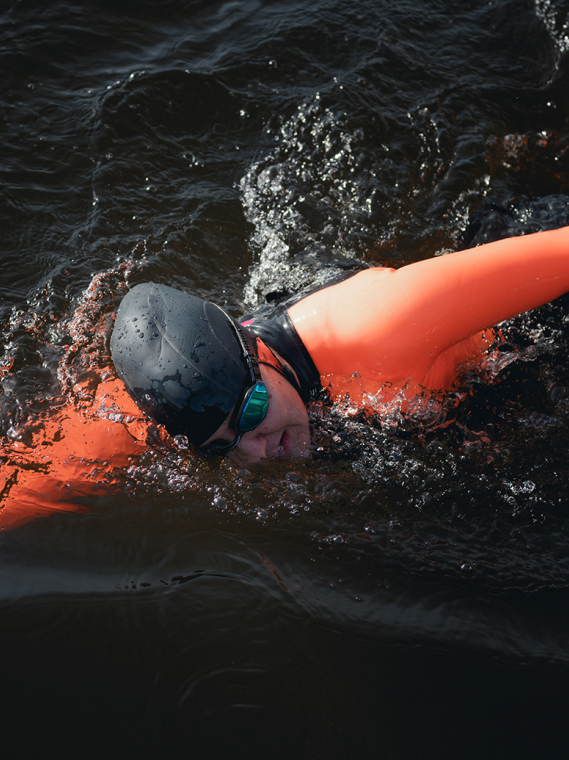
Choosing your equipment for open water swimming
Entry-level
April 12, 2021
When you are starting out in the world of open water swimming, it is totally normal to deal with doubts and questions, such as: What equipment should...
Bonnie Tsui brings us an excerpt from her book Why We Swim, a poetic and reflective essay on the act of swimming. An essential book for lovers of swimming and those curious about the history of this sport and its intricacies.

Bonnie Tsui brings us an excerpt from her book Why We Swim, a poetic and reflective essay on the act of swimming. An essential book for lovers of swimming and those curious about the history of this sport and its intricacies.
Bonnie Tsui- Journalist and author of the bestselling Why We Swim
On a gray, drizzly December morning, I join the world record-holding marathon swimmer Kim Chambers for a swim in San Francisco Bay. I want to get a sense of the way that swimming is a daily practice for her, and how it got that way. The water temperature is a brisk fifty-three degrees Fahrenheit, the air forty-eight. “The days I don’t get in are the days I don’t feel right,” she tells me as we contemplate the bay from Aquatic Park.

STRETCHING MIND AND BODY
For many swimmers, the act of swimming is a tonic, in that old-fashioned sense of the word: it is a restorative, a stimulant, undertaken for a feeling of vigor and well-being. The word tonic comes from the Greek tonikos, “of or for stretching.” About a dozen people are in the water already, swimming against the unlikely backdrop of ships and industrial docks and tall-masted sailboats. Rain pocks the steely surface of the water, a liquid-mercury mirror of the sky above. There is an expansiveness here. It’s not too hard to think of this kind of swimming as stretching the mind as well as the body.

FOOLS WHO SWIM IN THE NATURAL WORLD
A seagull pegs me on the shoulder, mid freestyle stroke. I nearly jump out of my swimsuit in surprise, and then I call out to Kim. “I think a bird just hit me,” I exclaim, incredulous.
“It’s their swimming pool,” Kim answers, laughing. “We’re just the fools who think we can swim in it.”
We submerge ourselves in the natural world because the natural world has a way of eliciting awe. Across the Pacific, every morning at seven a.m. in Sydney, Australia, hundreds of swimmers gather at the city’s famous Manly Beach for an open-water swim. They swim about half a mile across a bay to Shelly Beach. Then they turn around and swim back. The locals describe it as their “wake-up call.”
The swimmers wear bright pink swim caps. The squad was started by middle-aged women who wanted to gain courage from each other to swim that distance across the open water. In an essay about her daily outings with the group, the Australian writer and broadcaster Julia Baird observes the way they watch the scroll of scenery as they swim: “Most days, at some spot along the mile-long route, heads will cluster, arms pointing down under the water at enormous blue groupers, white dolphins, color-changing cuttlefish, wobbegongs . . . even tiny turtles and sea horses.” Of the gangs of dusky whaler sharks that swim beneath, Baird takes note: “There’s a reason a collective term for sharks is a shiver.”

IT’S AKIN TO A RELIGIOUS EXPERIENCE
Some days the swimmers are lashed by jellyfish and currents and powerful surf. (When I was a college student studying abroad in Sydney, I swam frequently at Manly and can attest to the unpleasantness of the jellyfish.) Some days the whales come. It’s akin to a religious experience.
“As your arms circle, swing, and pull along the edge of a vast ocean, your mind wanders,” Baird writes. With the drift into deeper waters comes freedom and the shift in perception that is awe. “Awe,” she continues, “experienced when you witness something astonishing, unfathomable, or greater than yourself, ventilates and expands our concept of time.”

FEELING SUSPENDED
We feel light, suspended. Time slows down in the best way, and we feel that we have more of it. Psychologists at Stanford University and the University of Minnesota, led by researcher Melanie Rudd, have shown that after experiencing awe, we are more likely to help others and to be relaxed and satisfied with life. When I ask Rudd about her findings, she explains that the experience of awe heightens our focus on the present. “It captivates people’s attention with what is currently happening with them and around them,” she says. And the effects of awe are striking even beyond the moment—it makes us feel more time-rich, less impatient, more generous. It helps us to be our better selves. And who doesn’t want that?

ABOUT BONNIE TSUI
Bonnie Tsui is a longtime journalist for The New York Times and the author of the bestselling WHY WE SWIM, a New York Times Book Review Editors' Choice, a TIME Magazine Must-Read Book of 2020, and an NPR Best Book of the Year. It is currently being translated into eight languages. Her first children's book, SARAH & THE BIG WAVE, about the first woman to surf Mavericks, was published last month. She lives, swims, and surfs in the Bay Area.

April 12, 2021
When you are starting out in the world of open water swimming, it is totally normal to deal with doubts and questions, such as: What equipment should...

March 29, 2021
Like so many of us I’ve always loved the water, some of my earliest childhood memories involve splashing about in the waves with my family in Sidmouth...

March 22, 2021
Preparing to swim in the ocean is not the same as training to swim in a pool, and it's important be fully aware of this when setting goals for you...